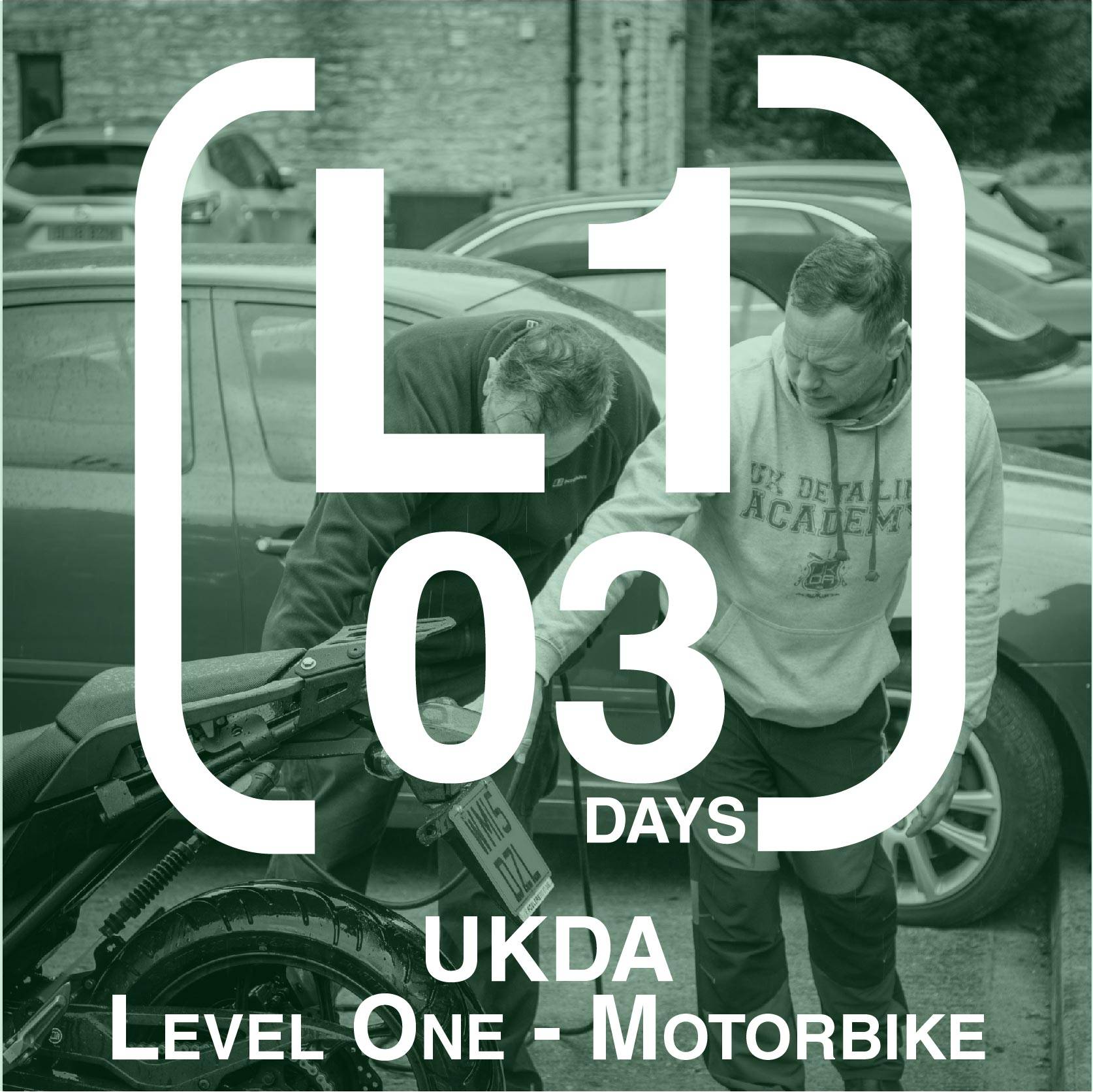The Level One Motorbike course is tailored for individuals venturing into the motorbike detailing industry, or seeking to refine their skills with a specific focus on motorcycles. Its objective is to familiarise candidates with the processes and maintenance of two-wheeled vehicles, encompassing both professional and business perspectives. From foundational vehicle cleaning techniques and vehicle setup on stands for safe working, fairing removal and bike-specific protocols to becoming adept with small dual-action machine polishers, participants gain comprehensive knowledge.
If participants are looking to work across all vehicle types, they have the flexibility to opt for either the motorbike-focused Level One Course on its own and complete another course in future, or our standard vehicle Level One course with the Level 1 + Motorbike option, which covers both mediums.
Topics covered include:
- Pre-work inspection
- Manual handling
- Use of paddock stands
- Washing stages
- Wash media
- Environmental considerations
- Drying methods
- Bonded contamination and its removal
- Wheel care and maintenance
- Glass and hard surfaces
- Engine bay cleaning
- Vulnerable surfaces
- Efficiency and process
- PPE and safety
- Clothing and working practices
- Risk assessment
- Chemical knowledge
- Van set-ups
- Interior detailing
- Leather and soft surface care
- Fillers/glazing
- Dual action machine polishers intro
- Minor defect identification
- Paint types
- LSPs
- Final presentation
- Marketing
- Conflict resolution and customer care
- Financing
- Insurance
- Pricing and quotes
- Business Administration
- Memberships
- Social Media
- Safe working practices
Each level comes with a comprehensive course booklet for reference. Practical assessments are conducted during the training session to ensure comprehension and understanding, followed by a series of case studies and exercises following the course to reinforce learning. An externally assessed exam completes the certification process, and , upon successful completion, participants receive Level One accreditation and have the choice to progress further with our course structure, or practice their acquired skills with ongoing support.
